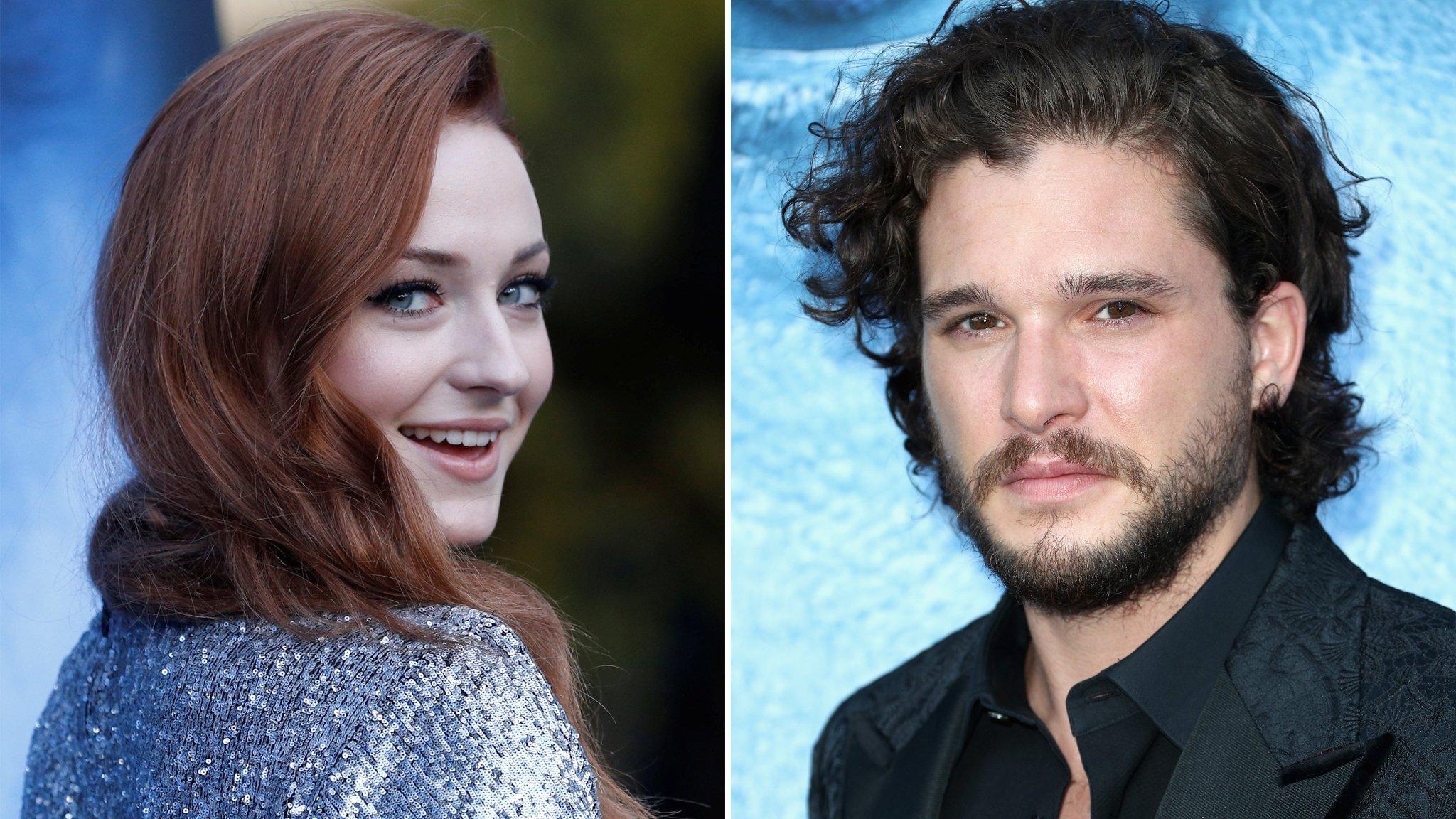Game of Thrones' Ellie Kendrick wants to open up 'closed shop' film industry
- Published

Ellie Kendrick is known to Game of Thrones fans as Meera Reed
After starring in Game of Thrones and a string of indie films, Ellie Kendrick is one of British acting's rising stars. She's also doing her bit to give underrepresented young talent a leg up.
It's not what you know, it's who you know - and that's particularly true in the film and TV industries, according to Kendrick.
When it comes to going to drama school or funding your first short film, it's also about how much money you've got.
"I've worked in the film industry on and off for about half my life and I've noticed that the worlds that are represented on our screens by no means mirror the worlds that we see around us in our everyday lives," the 27-year-old says.
"Part of that is because it's such a difficult industry to break into and often it requires huge financial support from parents or jobs. Or it requires contacts you've made in film school - which again costs a lot of money.
"So it's a bit of a closed shop."
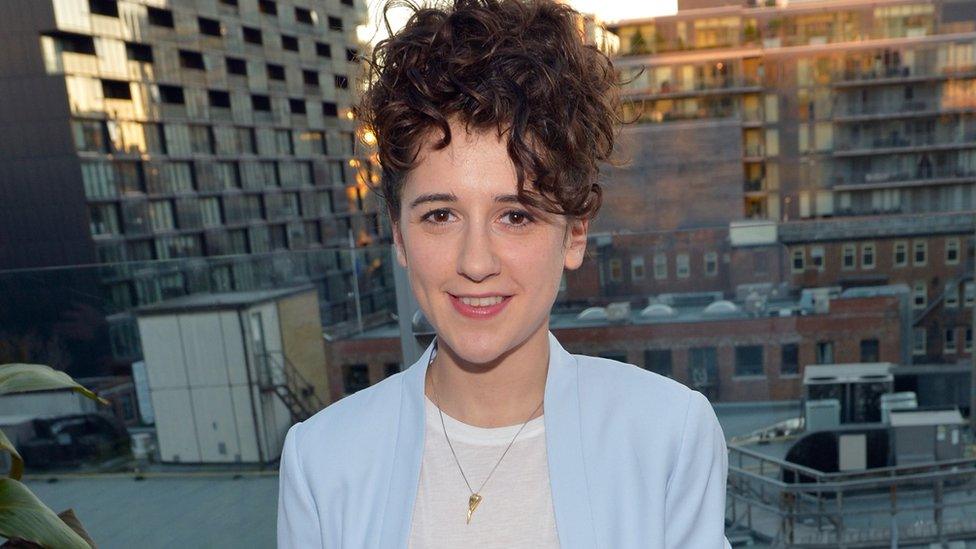
Kendrick has also been mentoring a younger actress
Kendrick is known for fighting White Walkers and protecting Bran Stark as Meera Reed in Game of Thrones. She is speaking in her capacity as ambassador for Creative England's Shortflix scheme, external, which is looking for budding young film-makers who aren't in education, employment or training.
Five successful applicants will get funding to make a short film, as well as gaining priceless contacts and kudos.
The scheme has been set up to give opportunities to those from under-represented groups who have the talent and the ambition but not the foot in the door.
"It's a gateway to people who might not have the financial means or the industry contacts to break in to that industry," Kendrick says.
Shortflix launched in May and the first five finalists made short films about subjects including black gay dancehall culture in London, homophobia in an Afro-Caribbean hair salon in Sheffield and a suicidal young man in Bath.
'A broader range of voices'
It will open for applications again this autumn. Kendrick thinks opening up chances like this is "really going to improve our industry" in the long run.
"It's just going to make better drama and better films because we're going to have more stories and a broader range of voices, and that's always going to make much more interesting work," she says.
And British film could do with a bit of a shake-up, Kendrick believes.
"Sometimes people are put off by seeing only white middle-class period dramas," she says. "Not that there's not a place for those.
'Talent emerging'
"But when those are the only things that are exported to a global market, we start to think that's the only thing British film can do. And there's so much more to it than that."
Creative England's head Caroline Norbury added that the organisation was set up "to combat the challenge that whilst talent might be everywhere, opportunity is not".
She said they "work hard" to "make sure that talented people and creative businesses are connected to the money, the markets and the networks that will help them to thrive".
Shortflix enables "talented new filmmakers from diverse backgrounds to tell their story about their community and identity", she added.
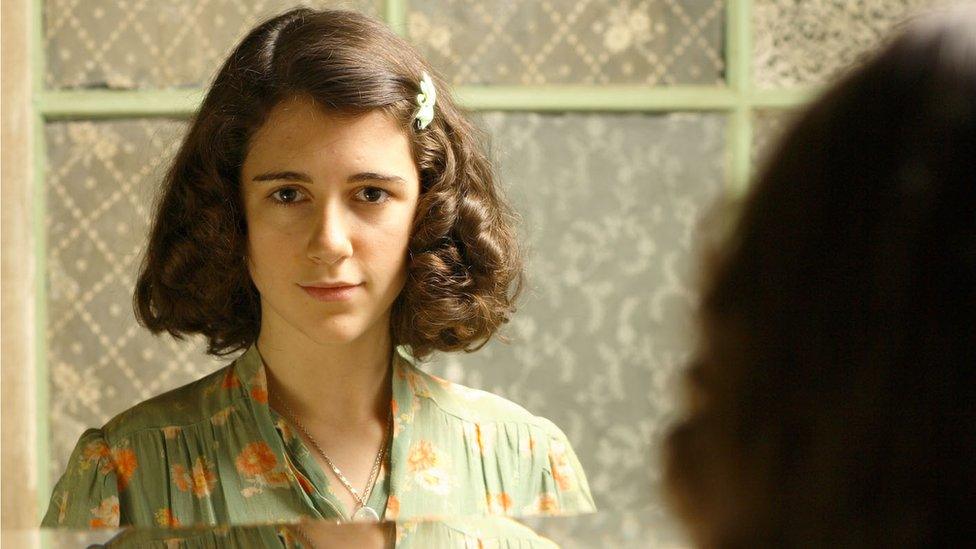
Kendrick began her career in The Diary of Anne Frank
As well as Game of Thrones, Kendrick has had roles in films like An Education with Carey Mulligan, last year's Whisky Galore! remake, and The Levelling, the bleak farming drama that came out earlier this year.
On TV, she has been in Being Human and Upstairs, Downstairs - all after her first starring role, in the title role in the BBC's dramatisation of The Diary of Anne Frank in 2009.
"So much of this industry is about knowing where opportunities are," she says. "I was only able to become an actor because I happened to know someone who told me about an open audition that a kids' agency was having.
"If I hadn't had that one person tipping me off, then I wouldn't have been able to get into this industry.
"Loads of it is about contacts, and it's awful that that's the case."
'Sense of entitlement'
As well as supporting Shortflix, Kendrick has been mentoring a younger actress as part of a scheme run by charity Arts Emergency.
She set up meetings for her mentee with drama schools, took her behind the scenes at the National Theatre and arranged for audition coaching with an actor friend.
She wanted to make her protege feel like she had "an entitlement to the industry - that sense of entitlement that so many people who might have had a lot of privilege in their lives take for granted", she says.
Kendrick herself knows Game of Thrones is her biggest calling card, and made her "eligible", as she puts it, for leading roles like the one in The Levelling.
After Game of Thrones' penultimate seventh season, she speaks proudly about how the dogged Meera has survived - with her dignity and integrity intact.
Caring, sharing zombie killer
"I really like that she's a character who defies convention in terms of traditional representations of femininity," she says.
"We're quite fixated at the moment with what we call strong female characters, but what I'd like to push for are complex female characters rather than ones who are just strong, and that's their sole defining characteristic.
"Not only is she strong - she's also kind of vulnerable but she hides that vulnerability with the strength that she has to summon to survive.
"She's undergone an incredibly traumatic series of events but she still manages to maintain a calmness and a kindness and a tenderness, which I think is really laudable.
"But also, you know, I get to wield an axe occasionally and kill some zombies.
"So, all in all, she's a pretty well-rounded character."

Follow us on Facebook, external, on Twitter @BBCNewsEnts, external, or on Instagram at bbcnewsents, external. If you have a story suggestion email entertainment.news@bbc.co.uk.
- Published28 August 2017
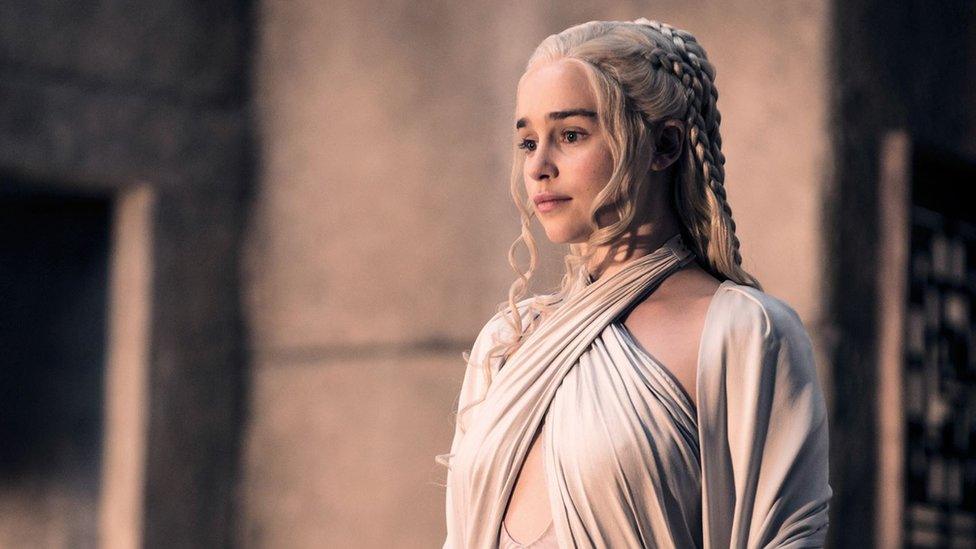
- Published29 August 2017
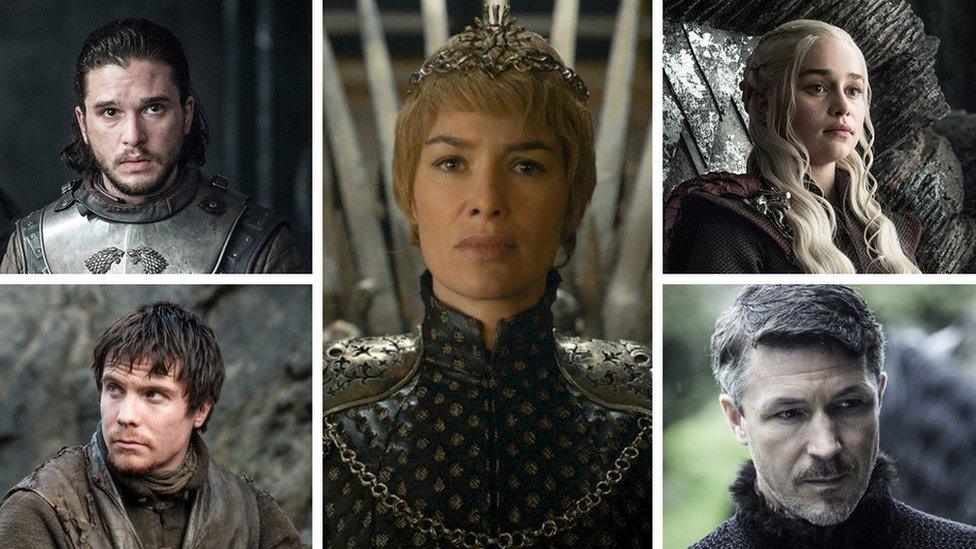
- Published17 July 2017
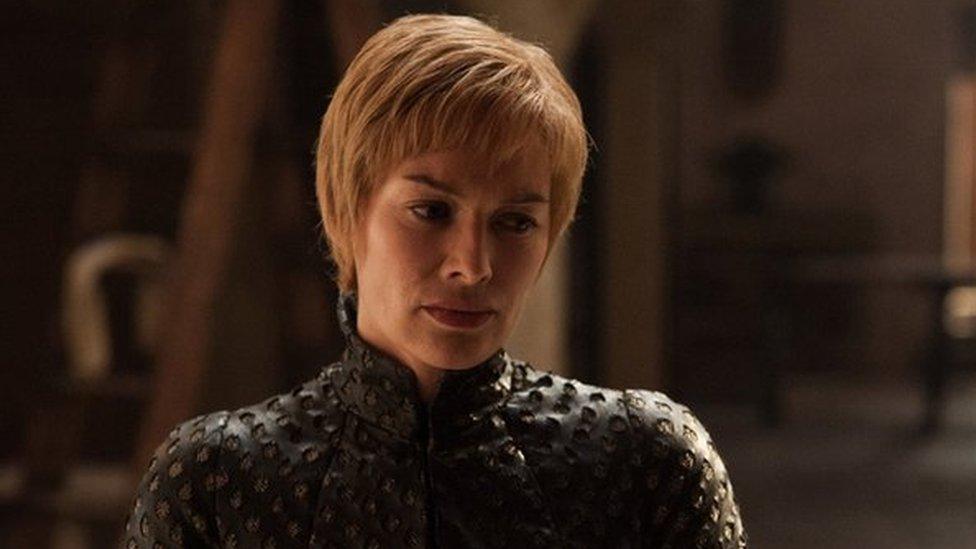
- Published13 July 2017
